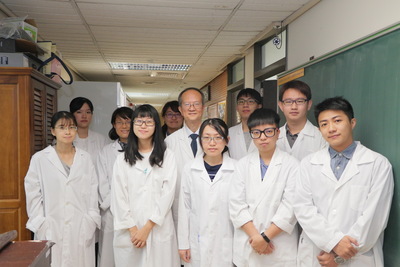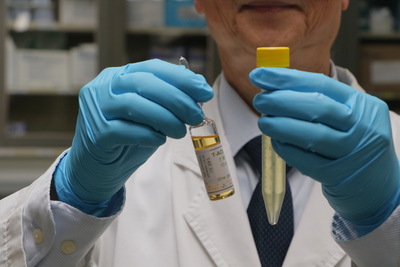

Taiwan’s National Cheng Kung University (NCKU) has recently revealed three medical breakthroughs, aimed at improving vascular embolization treatment and endoscopic mucosal resection.
The combinational device and medical technology were the fruitful results of tremendous, long-term efforts made by Taiwan’s researchers, said Xi-Zhang Lin, an NCKU Internal Medicine Professor and NCKU Hospital Gastroenterology Doctor, who led a cross-field R&D team in the Tainan-based university.
“If such breakthroughs can go into mass production, local patients would benefit from the inexpensively-priced treatments. Such device and technologies can also be exported overseas, helping develop Taiwan’s biomedicine industry,” he added.
The progress proves that Taiwan is capable of developing combinational device as good as those from other advanced countries, the prof. Lin said. “Cross-field thinking and team work is the key,” he stated, adding that all the team members sacrifice their off-duty time for the projects yet learn a lot from the experience.
The arterial chemoembolization with drug-eluting beads is a new treatment for liver cancer. The NCKU team developed Taiwan’s first drug-eluting microspheres for vascular embolization, also known as Taiwan ACE Beads. Through the patented spray granulation technique, the Bead is only the size of 75-150 micrometers and can carry the drug to the desired lesion, hence improving treatment effect. The Bead is biodegradable and has no side effect, which is better than any costly imported products available in the market, Lin said, noting that the Taiwan-developed product has already passed its first human subject research.
Later, the Bead is expected to be used for the treatment for benign prostate enlargement once it passes its human subject research, according to the team.
It was the joint achievement of a cross-field R&D team which comprises the painstaking efforts of different departments and fields, Lin said, revealing that his team is also working on microspheres that can carry radioactive isotope Rhenium. The treatment is said to increase liver cancer survival as it has similar effect to having 24-hour radiation therapy inside your body.
For liver cancer treatment, Lin’s team also developed the Taiwan ACE Oil, an injectable vegetable oil to replace the iodinated oil. As a consultant at the Food Industry Research and Development Institute, Lin said that Taiwan is good at oil refinery and that the Taiwan-developed ACE Oil has proved to exceed the poppyseed-based iodinated oil in the in vitro experiments. As the iodinated oil is pricey, many foreign medical institutes had requested to be part of the clinical trial for the Taiwan ACE Oil, which is now in the process of product registration and inspection, according to Lin.
Lin’s team also dug into ways of elevating lesions when conducting endoscopic mucosal resection. Such mucosal elevation helps improve the resection process and healing. Instead of using normal saline to do the job, the team formulated hydrogel (Endo Gel) from seaweed, which is said to provide better elasticity and elevation than hyaluronic acid. The Gel has already completed human subject research and can be used for early-stage stomach cancer, esophagus cancer or rectal polyp resections.
The above mentioned self-developed breakthroughs were all on display at the 2018 Taiwan Healthcare+ Expo, an annual platform that bridges interdisciplinary collaborations between medicine, IT/electronics, and bio-pharmaceuticals.
Report & Photo by Qing-Ci Meng
(Report & Photo by孟慶慈)



